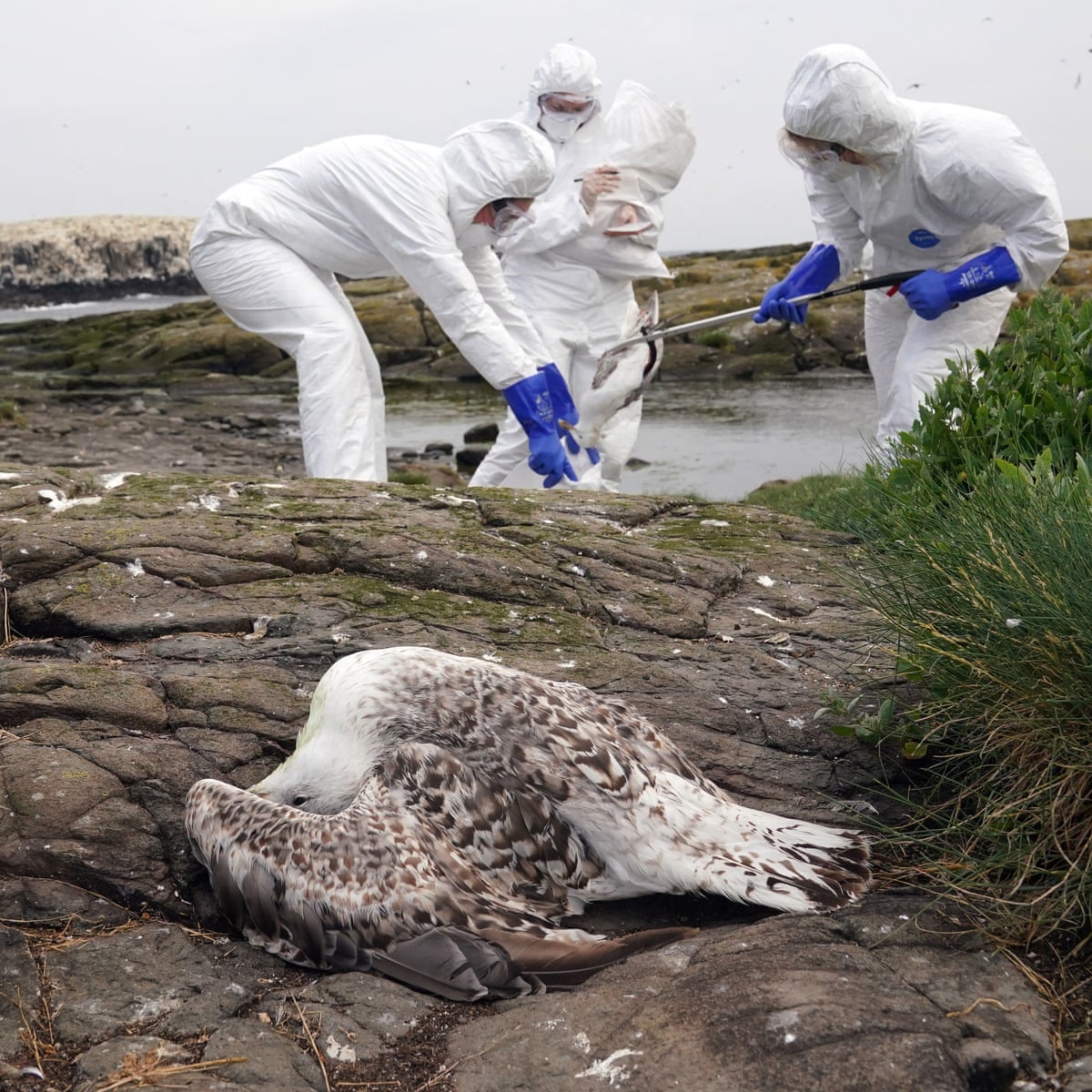22 August 2023 See all updates. WEB So far 78 UK bird species have tested positive for avian flu including most of our breeding seabirds. WEB Sun 26 Feb 2023 0434 EST British health officials are preparing plans to deploy lateral flow tests if signs emerge that..
22 August 2023 See all updates. WEB So far 78 UK bird species have tested positive for avian flu including most of our breeding seabirds. WEB Sun 26 Feb 2023 0434 EST British health officials are preparing plans to deploy lateral flow tests if signs emerge that..
**Urgent Measures in Galápagos to Combat Avian Flu Threat** **Galápagos Islands, Ecuador** - National park authorities on the Galápagos Islands have implemented heightened biosecurity measures to protect the archipelago's unique fauna from the deadly H5N1 strain of avian flu. The development has alarmed conservation biologists, as this strain has caused widespread devastation among birds and marine mammals on five continents. In mid-September 2023, the first case of H5N1 Avian Influenza was detected in the Galápagos, causing concern about its potential impact on the archipelago's biodiversity. The virus, which has been declared a global pandemic in animals (known as a panzootic), has been particularly destructive outside the Galápagos. Experts are unsure why the archipelago has so far remained unaffected, but biosecurity agents are working diligently to prevent its spread. "The Galápagos Islands are home to some of the most unique and fragile species on Earth," said a park spokesperson. "Protecting them from this highly contagious virus is crucial for the preservation of their biodiversity." The biosecurity measures include increased inspections of incoming vessels and aircraft, disinfection of equipment, and quarantine protocols for wildlife. Authorities are also closely monitoring bird populations and collecting samples for testing. "We are taking every possible step to keep the H5N1 virus out of the Galápagos and protect the health of our wildlife," added the spokesperson. Conservationists around the world are urging the international community to support the Galápagos Islands in its efforts to combat avian flu and safeguard its irreplaceable biodiversity.
WEB SOUTH GEORGIA Update January 2024 Testing for Highly Pathogenic Avian Influenza HPAI. Experts said that a highly pathogenic avian influenza HPAI has been. WEB Government of South Georgia the South Sandwich Islands GSGSSI has a tiered response in. WEB Last month October 2023 Highly Pathogenic Avian Influenza HPAI was confirmed on Bird Island South. WEB Working alongside the Government of South Georgia and South Sandwich Islands GSGSSI and the. Thu 14 Mar 2024 0100 EDT The grave of the explorer Ernest Shackleton on South Georgia island. WEB The government of South Georgia and South Sandwich Islands has reported that Highly Pathogenic Avian..
**Bird Flu Reaches Antarctica for the First Time, Posing Threat to Wildlife** In a concerning development, bird flu, a highly contagious and deadly disease, has reached the mainland of Antarctica for the first time. The presence of the virus has raised alarm among scientists and conservationists, as it has the potential to devastate animal populations in the remote continent. "We are closely monitoring the situation and taking all necessary precautions to prevent the spread of the disease," said Dr. Andrew Fleming, a spokesperson for the British Antarctic Survey. "We are particularly concerned about the impact bird flu could have on penguin and seal populations." Experts believe the virus may have been carried to Antarctica by migratory birds, which are known to travel long distances. It is likely that the disease will spread rapidly among bird populations, as there is no natural immunity to the virus in this isolated region. The spread of bird flu in Antarctica could have far-reaching consequences. Not only could it lead to significant bird deaths, but it could also have a ripple effect on other animal species that rely on birds as a food source. Additionally, the virus could potentially spread to Australia, where it could pose a threat to the country's poultry industry. Scientists and conservation organizations are working together to assess the extent of the outbreak and to implement measures to contain its spread. However, given the vast and remote nature of Antarctica, this will be a challenging task. The discovery of bird flu in Antarctica highlights the importance of international cooperation and research to address emerging threats to wildlife. It also serves as a reminder that even the most remote regions of the globe are not immune to the challenges facing our planet.


Comments